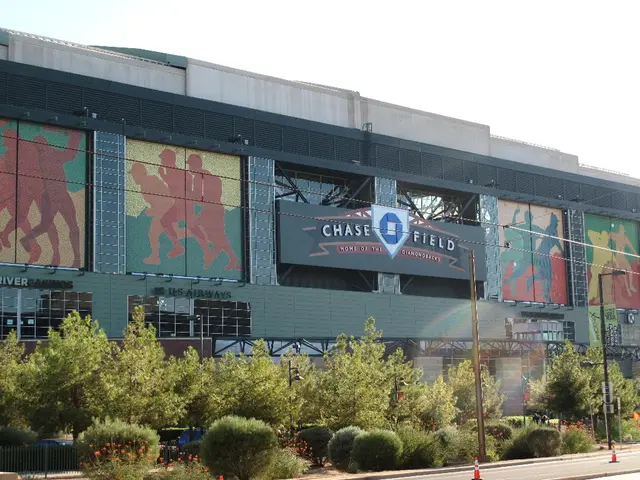Every year, approximately 3000 cyclists triumph over the Rhine-River tunnel during the ADFC star ride event
In a bid to connect cycle paths and public transport for daily life without relying on cars, over 3000 cycling activists from across Germany recently pedaled through the city of Düsseldorf. The event, organised by the General German Bicycle Club (ADFC), was a call to action for better cycling conditions and infrastructure in the city.
The rally, which took place on May 4, started at Johannes-Rau-Platz, State Chancellery, and covered a distance of approximately 18 kilometers. The route included crossing two Rhine bridges and the Rhine tunnel, which was exclusively for cyclists for a few minutes. The demonstration was slowed down by the police in favor of the demonstration, surprising motorists.
Despite Düsseldorf city administrators talking about long-distance cycle paths and transforming into a bike-friendly city, the cycling infrastructure remains a user-unfriendly patchwork. This was highlighted by the cold headwind and rain that the cyclists had to endure during their journey.
In her greeting speech, Daniela Günther, the new chairwoman of the ADFC Düsseldorf, emphasized the need for action. Vera Konrad, an ADFC member from Mönchengladbach, collected signatures to restore a protected cycle lane that was initially installed but later withdrawn by the city administration. Susanne Niemann, chairwoman of the ADFC state association NRW, also called for politicians who set clear priorities for safe cycle paths.
The ADFC has expressed concern about the strong headwind against cyclists in North Rhine-Westphalia cities, including Düsseldorf. They are advocating for immediate clarification of dangerous spots, concrete and verifiable measures for bicycle path construction, and more space for bicycles, parking, and courage.
Germany has been actively improving its cycling infrastructure, with significant investments in sustainable transportation. The Federal Ministry for Digital and Transport, through the Federal Logistics and Mobility Office (BALM), plays a crucial role in promoting cycling and sustainable mobility. Germany has also seen continued investment in e-bike subsidies, reflecting a broader European trend towards sustainable transportation.
For more precise information on Düsseldorf's cycling infrastructure and ADFC's local advocacy efforts, local news sources or ADFC's regional chapters would be the best resources. Major cycling events like Rad am Ring, which takes place nearby, highlight the growing interest in cycling in the region, though specific infrastructure improvements are not detailed in the available information.
Four months before the local election in September, the ADFC is calling on decision-makers in all cities and communities in North Rhine-Westphalia to implement long-delayed plans for cycling infrastructure. A family bike with three seats, called Tridem, was showcased during the event, capable of reaching an average speed of 30 kilometers per hour, further emphasizing the potential of cycling as a viable and convenient mode of transport.
The cycling activists, in their journey through Düsseldorf, highlighted the need for improved cycling conditions and infrastructure, specifically a user-friendly patchwork currently lacking. During the rally, they called for politicians to prioritize safe cycling paths, pushing for more concrete measures, better infrastructure, and increased space for bicycles and parking.
In their efforts to promote cycling as a viable mode of transport, the ADFC has advocated for immediate action against dangerous spots for cyclists, clear clarification of problem areas, and specific measures for bicycle path construction in cities like Düsseldorf. This shift towards sustainable transportation is reflected in Germany's significant investments in cycling infrastructure and e-bike subsidies.






